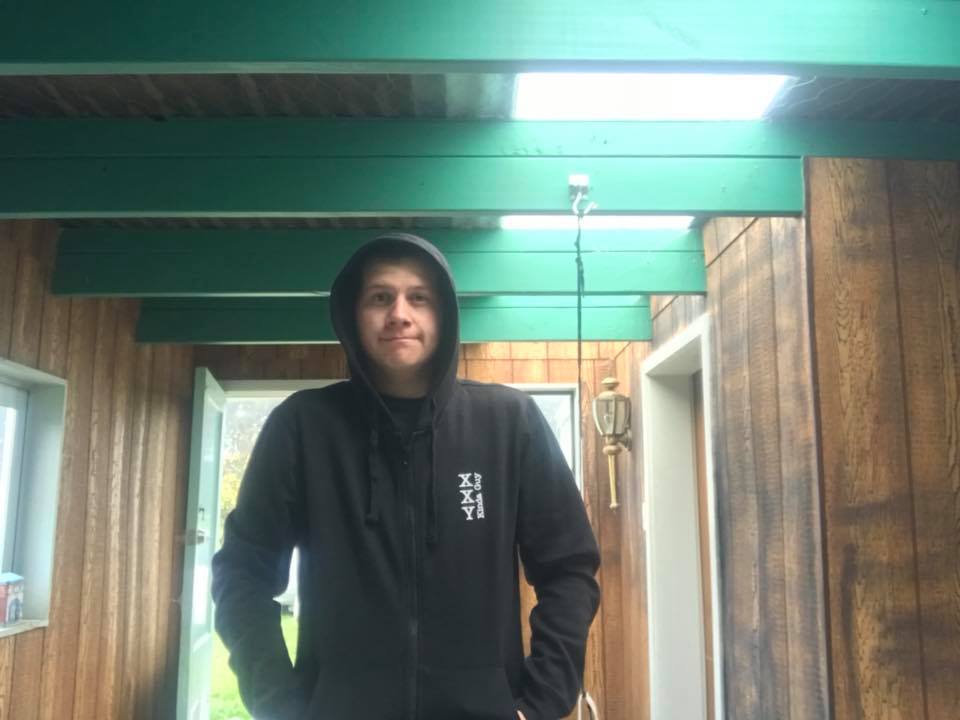Apr 13, 2021, 4:25 PM
Original Article HERE


Hi there, I’m Sam. I’m 27 and I got diagnosed with Klinefelter Syndrome at age 23, but those 23 years of not knowing were somewhat uncomfortable. I felt like I was very misunderstood as a child, into my teen years and early adulthood.
Klinefelter Syndrome is a genetic condition that results when a boy is born with an extra copy of the X chromosome. Klinefelter Syndrome is a genetic condition affecting males, and it often isn’t diagnosed until adulthood.
I had a big struggle with learning, I could never really understand what I was being taught unless it was hands-on. One-on-one learning was definitely the best option for me so when I had a teacher aide it was very good.
Up until now, I was a very antisocial person that struggled to make and “keep” friends. I’d always make up lies to sell myself on a bigger scale so people would like me, this was more because I never really had any faith in myself. I beat myself down emotionally and physically; I had always felt like a loner.
Into high school years, I didn’t really hit puberty right away, due to lacking testosterone – although at that stage I never knew. So while all the other teenage boys were growing bum fluff I was still a naked mole-rat so to speak. I’d always hide away getting changed for sports, I’d try and hide at the back of anything as I didn’t want to be noticed. That’s when the depression and anxiety really kicked in and the pure fact is I was different so I got bullied, tormented, ridiculed for just being me; this was very hard.
Moving forward a few years – I had always been a healthy guy. I was really into keeping fit and eating well, although I didn’t have much noticeable muscle tone to my body, no facial hair and body hair – well, a few bits here and there but nothing to boast about – and weak bones (osteoporosis). One day I just lost my libido and it was very strange for me since I had been very active. So I went to the doctor and told him what had been going on, did a few blood tests but there was nothing through them. I went back again and we looked over everything as a 23-year-old should not just lose their sex drive.
By looking at me you would see a guy post-puberty but I was 23 with no facial hair, no body hair, no muscle tone, no libido, and very small testicles.
I had the GP sort out blood tests to check the levels of gonadotropins, luteinizing hormone, follicle-stimulating hormone, and testosterone in the blood. In patients with Klinefelter Syndrome, tests characteristically show a low testosterone level, high sex hormone-binding globulin, and raised gonadotrophins. And from that, I found out I had Klinefelter syndrome which was a blessing to me because I had an answer to why I was the way that I was.
With knowing this information I spent days/weeks/months doing loads and loads of research – definitely not recommended as Google is not the nicest – but I did it anyway. I lost a lot of sleep and started with testosterone replacement therapy, and it has helped over the years.
It definitely wasn’t an overnight fix, it’s taken a lot of time, four years so far but I’m growing facial hair, body muscle mass, and confidence, although we all have up and down days. I’ve definitely gained confidence which has helped me a heck of a lot. There is a downside or it’s how you want to look at the situation, but often having 47xxy means you’re infertile, dealing with that information has been tough, it’s constantly on the back burner in my mind but I seem to make do.
I made it my plan to cope with knowing I had Klinefelter Syndrome (also known as 47xxy) to help whoever I could do – maybe one day they could get the much-needed answers to help them.
Klinefelter syndrome may adversely affect testicular growth, resulting in smaller than normal testicles, which can lead to lower production of testosterone. The syndrome may also cause reduced muscle mass, reduced body and facial hair, and enlarged breast tissue. The effects of Klinefelter Syndrome vary, and not everyone has the same signs and symptoms.
Everybody is different.
On the bright side, knowing I’ve got Klinefelter Syndrome saved my life. It may sound like a cliche but in many aspects, it’s helped me achieve some amazing things in life and I’ve got to meet some incredible people. Being different isn’t a bad thing – heck, maybe it’s my superpower!
Note: While Klinefelter Syndrome does not fit the definition of rare (l1 in 500/600 males affected) it is rarely diagnosed and there are rare forms of this disorder



